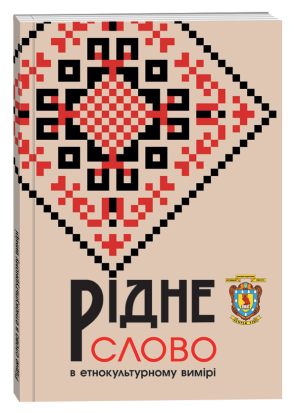COMMUNICATIVE ACTIVITY APPROACH TO THE FORMATION OF ORTHOGRAPHIC LITERACY OF JUNIOR PUPILS
DOI:
https://doi.org/10.24919/2411-4758.2021.212386Keywords:
orthographic literacy; orthography; written speech; communicative activity approach; orthographic rules.Abstract
This article is about necessity to form orthographic literacy of junior pupils that is the main purpose of orthography mastering; it is emphasized that the work on the formation and improving the orthographic literacy of junior pupils must be systematic; the signifi cance of orthographic norms for the formation of linguistic personality is substantiated. It is noted how important is to develop practical spelling skills of pupils based on theoretical knowledge. The article analyzes the current educational programs for 2-4 forms, focuses on orthographic rules that are studied in each of the forms. It is noted that the work on the basic rules of spelling in Ukrainian language lessons in junior school is productive if it takes place on the communicative activity basis. The author of the article offers a number of tasks for elaboration of separate orthographic rules (including author’s own verses of didactic character). The purpose of the research - to prove the importance of orthography knowledge for the formation of the literate personality of elementary school student; to emphasize the special role of the communicative activity approach in mastering the basic spelling rules by junior pupils and in developing their ability to use practically mastered theoretical knowledge. After analyzing the problem of orthographic literacy of junior pupils, we concluded that this problem is relevant because the quality of spelling, knowledge of current orthographic rules allows the speaker to express their thoughts in writing. Of course, written speech is closely related to oral speech, so care must be taken to show literacy in both oral and written forms. And for this purpose it is necessary fi rst of all to process theoretical material on orthography systematically, to carry out various exercises and tasks, to work with the orthographical dictionary, developing on the basis of theoretical knowledge practical orthographic skills. In our opinion, the problem of orthographic literacy formation of junior pupils on a communicative activity basis is extremely important, so it requires further research.
References
Вашуленко, М. (Ред). (2010). Методика навчання української мови в початковій школі. Київ: Літера ЛТД.
Гриценко, Наталія. (2000). Системна робота з підвищення орфографічної грамотності учнів початкових класів. Бібліотечка вчителя початкової школи, 15 – 16, 2 – 5.
Дорошенко, С. (Ред). (1992). Методика викладання української мови. Київ: Вища школа. Зубков, М. (2004). Українська мова: Універсальний довідник. Харків: ВД «Школа».
Лужецька, Л. (2007). Вивчайте, діти, рідну мову! Дрогобич: Посвіт. Типові освітні програми для закладів загальної середньої освіти: 1-2 та 3-4 класи. (2019). Київ: Світоч.

